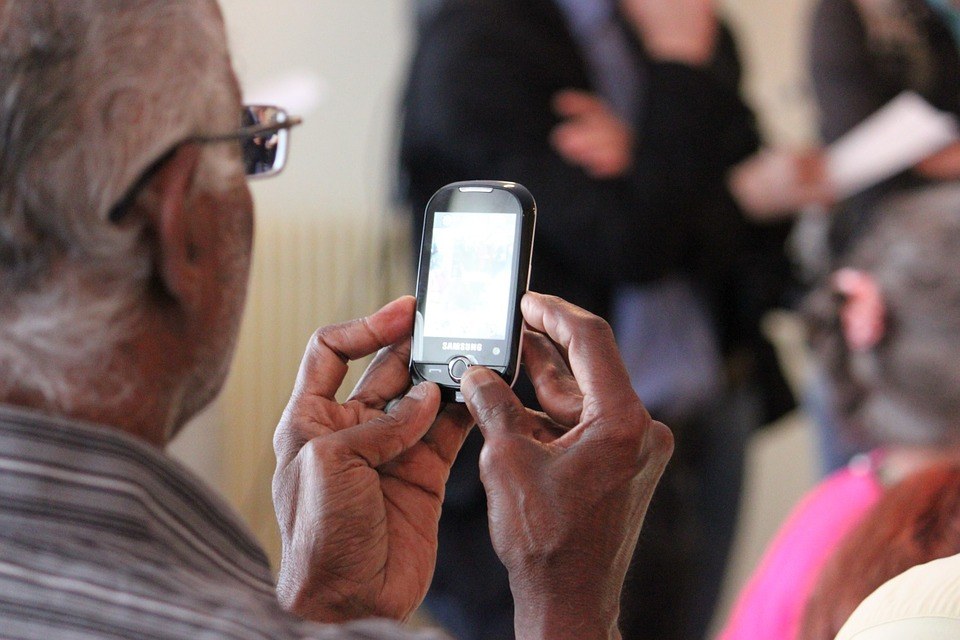Computer Love: Incorporating technology into caregiving

In this session of Caregiver Tip Tuesday we look at the different technologies on the market that are being used to assist with caregiving.
Aging seniors and technology may not seem like two components that fit perfectly together, in fact they may seem more like polar opposites, but a growing number of tech companies are creating new software programs, applications and devices that are designed specifically for seniors. It is estimated that this new market will generate $20 billion dollars for the tech sector buy 2020.
As caregivers these technologies are often marketed to you too because many of them are intended to help you in caring for your loved one. Knowing when and if technology can be of assistance with your caregiving takes some research, and will likely involve consultation with your loved one's care team to assess whether your loved one is a suitable candidate for the devices and applications that are currently on the market.
So you've determined that your loved one is a suitable candidate, now what? In a world full of social media websites and iPhone applications, knowing what technologies to use can be overwhelming, so we've compiled a list of some of the top technologies being used in caregiving today:
1. GPS Technology: There are currently a number of devices targeted at helping caregivers know the exact whereabouts of their loved one at all times. These devices are ideal for caregivers who may not live close by or with their loved one. They often come in the form of necklaces, pendants, wrist clips or belt clips and provide caregivers with alerts when their loved one has gone outside of a designated areas. This is also known as geo tracking.
2. Sensors: Wireless sensors are also an ideal option for caregivers who do not live with their loved one. With these sensors caregivers can be alerted if their loved one's movements or activities are out of the ordinary. For example if your loved one goes to the bathroom in the middle of the night and slips the sensors will detect this movement and be able to alert you right away.
3. Personal Emergency Response Systems: These devices are intended to help your loved one alert for help if they fall or find themselves in a situation where they cannot help themselves. Similar to GPS devices, they often come in the form of a necklace or pendant and have an alert button which when pressed would connect your loved one to a call centre coordinator. The coordinator would then address the need of your loved one. I.e. Send an ambulance, contact you, or send the fire department.
4. Video Chat: If your loved one is able bodied enough to operate a computer or tablet, then using video chat technology can be a great addition to your caregiving. There are a number free video messaging programs that allow you to connect with your loved one with just the simple push of a button. Video chat technology can also be used as a tool to help family and friends to take part in the caregiving process by having weekly or monthly video chat check -ins with your loved one.
5. Care Coordination Websites: If you have a number of people involved in your loved one's care it might be helpful to look into websites that specialize in care coordination. A number of these websites are similar to popular social networking sites like Facebook or LinkedIn, except they limit access to individuals involved in your loved ones care. These websites provide a dedicated virtual space to discuss updates on the health and state of your loved one as well as coordinate appointments and errands amongst family members or friends.
6. Medication Management: If your loved one takes medication, medication management devices are a good way to not only remind them to take their medication, but also give you the peace of mind that they have actually taken them. Many devices on the market can give you real time alerts when your loved one has not taken their medicine and newer devices now have the ability to dispense the correct dose and types of medication to your loved one. Eliminating any worry of them taking the wrong medicine or the wrong dose.
These are only a few of the technologies being used in caregiving today, the applications, programs and devices on the market range from basic to extremely advanced and it may take a few trials of a variety of technologies to know which ones works for you and your loved one. For more information on technology and the aging population check out Laurie Orlov's blog Aging in Place Technology Watch.